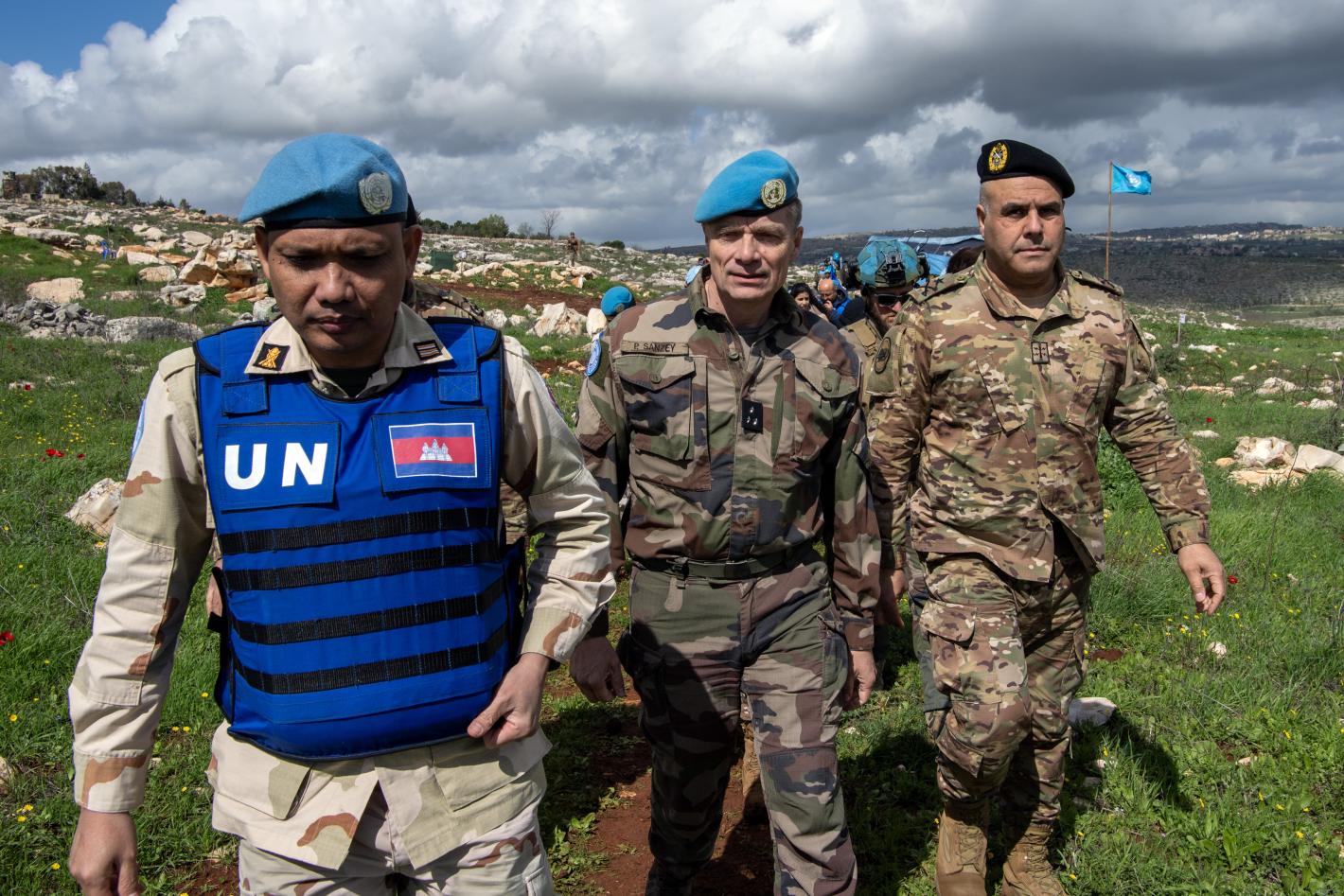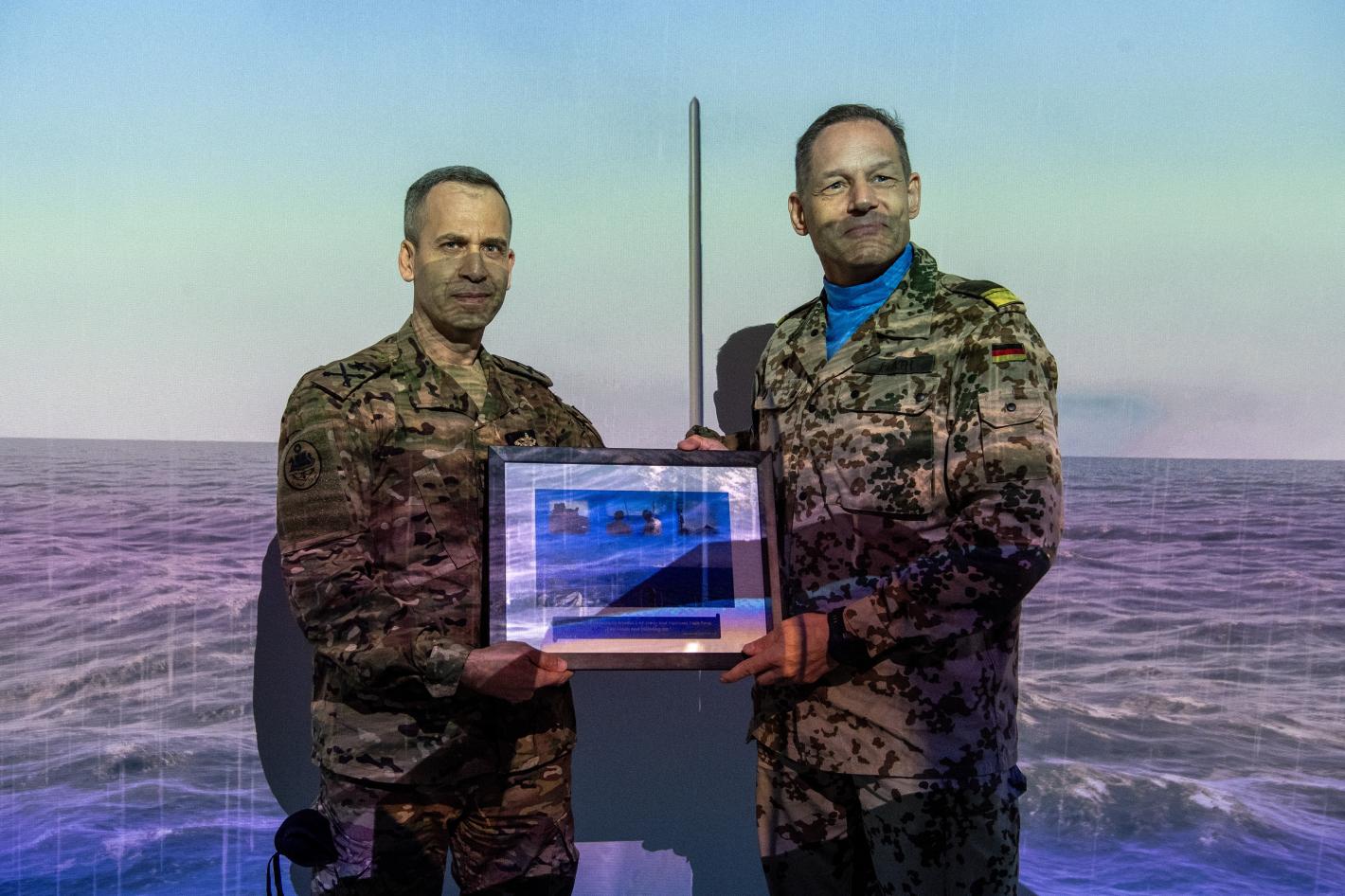(Mr. Alain Le Roy during a press encounter at the Blue Line in south Lebanon Monday, 4 May 2009)
This is my first visit to UNIFIL since taking up office in 2008. I spent today with the UNIFIL troops in the field to see first hand the way UNIFIL operates.
I was briefed about and saw some of the joint activities of UNIFIL and Lebanese army troops.The collaboration between UNIFIL and the Lebanese Armed Forces has helped to establish a new strategic environment in southern Lebanon. I also visited UN troops positioned around Ghajar and was informed about UNIFIL's efforts to facilitate the withdrawal of the Israeli forces. Just now, I was briefed about the process to visibly mark the Line of Withdrawal – the so called Blue Line – and to construct a road along the Blue Line to be used by Lebanese army patrols.
I am impressed with the level of preparedness and operational tempo and capacity of UNIFIL forces on the ground. UNIFIL has helped to achieve a number of key objectives in resolution 1701 (2006). This has been possible because of the significant deployment of troops and maritime assets, involving substantial financial resources and the strong commitment of many troop-contributing countries, working in close collaboration with the Lebanese army. But this cannot be sustained indefinitely. The window of opportunity provided by UNIFIL's deployment should be seized by the parties to secure a permanent ceasefire and a long-term solution as envisaged in resolution 1701 (2006).
During my visit in the south today I was also struck by the level of deployment and degree of activity of the Lebanese troops in the area. Perhaps, the biggest achievement of resolution 1701 (2006) has been the deployment of the Lebanese army in this area after almost thirty years. Its role is the key element for the successful implementation of resolution 1701 (2006). At the same time, the support of the international community to the Lebanese army remains critical so that the force can assume effective security responsibility over the current area of UNIFIL's operations.
Thirdly, I want to also commend the attitude and steadfastness of the local population. The conflict in this area has had a very heavy toll on the civilian population and has harmed the development of the south. I am pleased to see that UNIFIL maintains close relations with the local communities and provides humanitarian assistance. There is a constant need for UNIFIL peacekeepers to reach out to the local communities in order to explain the mandate while also addressing the concerns of the local population. Good relations with the local population are critical if UNIFIL is to successfully implement its mandate. The support of the local population is also vital to the success of the Lebanese Armed Forces.
Ultimately, implementation of resolution 1701 can be achieved through a partnership between UNIFIL, the Lebanese armed forces and the local population. And I am happy with the way this partnership continues to develop and strengthen, at many different levels.
And finally, I have seen in the last few days some media reports on Ghajar. I also read today's statement of Prime Minister Seniora that reiterated the known position of the Government of Lebanon concerning the issue of Ghajar. I would also like to reiterate the United Nations position on the matter. Firstly, let me state very categorically that Israel is obligated under Security Council resolution 1701 to withdraw from part of the village of Ghajar and adjacent area north of the Line of Withdrawal (Blue Line). There is no question about that. UNIFIL has been working intensively with the Israel Defense Forces and Lebanese Armed Forces to facilitate the withdrawal. Last summer, UNIFIL submitted a proposal to both parties.
The Secretary-General has also held talks with senior leaders in Lebanon and Israel on the UNIFIL proposal and reiterated the urgent need to find an early solution to the matter. UNIFIL is still talking with the Israeli authorities on the modalities, but no date for the withdrawal of Israeli forces has been given yet. In the next few days I will be travelling to Israel and I intend to press on the Israeli government officials the importance of finding an early resolution on this issue. We are hopeful that we will soon reach an understanding on the UNIFIL proposal that will facilitate Israel's withdrawal from the area as required by resolution 1701.





